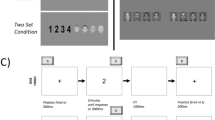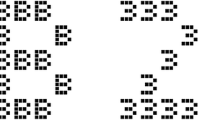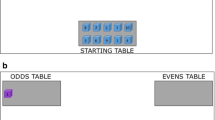Abstract
We explored shift costs for a dimensionally organized set of tasks. Task dimensions were type of judgement (numerical vs. spatial) and judgement-to-response mapping (compatible vs. incompatible). Shift costs were determined as the difference in RTs between switch trials and repetitions in a situation in which the kind of task was unpredictable. Shift costs were greatest when the type of judgement was changed. A change in the mapping increased shift costs when the type of judgement remained unchanged, but reduced shift costs when the type of judgement was changed as well. Also, response alternations produced costs when both the type of judgement and SR mapping were unchanged, but reduced shift costs otherwise. In addition to the relation between successive tasks, shift costs were modulated by the specifics of the elementary tasks. The major characteristics of the pattern of shift costs could be accounted for by the hypothesis of a dimensionally organized task space in which hierarchically organized, relative switching operations are performed that affect the highest-level task dimension at which a change is required, and all lower-level dimensions in a first step. In a second step, lower-level dimensions are switched back when no change is required, and then the selected control structure is implemented.
Similar content being viewed by others
Author information
Authors and Affiliations
Additional information
Received: 11 December 1997 / Accepted: 6 July 1998
Rights and permissions
About this article
Cite this article
Kleinsorge, T., Heuer, H. Hierarchical switching in a multi-dimensional task space. Psychological Research Psychologische Forschung 62, 300–312 (1999). https://doi.org/10.1007/s004260050060
Issue Date:
DOI: https://doi.org/10.1007/s004260050060




